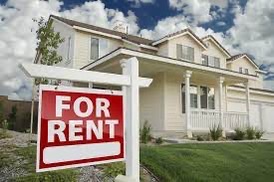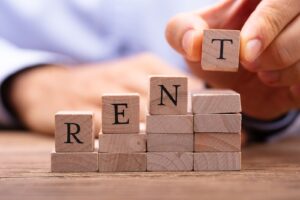So, you have an opportunity to live or work in another country, or you’re going back to your home country for a period of time. Such a great experience awaits you and the possibilities are endless.
But what do you do with your current residence?
It’s a great time to sell, but if you decide to come back in the near future, it might be difficult to buy back into the market.
For this reason, many homeowners consider keeping their principle residence and renting it out while they’re out of the country. This can be a great way to generate some passive income, while building equity in the property. It also keeps your options open, should your situation change and you need to move back to Canada.
That being said, you should also be aware that there are risks associated with owning a rental property. Not that this should deter you from becoming a Landlord, but you just need to plan ahead and maybe get assistance with the whole process.
Here are the most common questions that we’re asked by potential new Landlords.
How do I find great Tenants?
The quality of your Tenant is the most important factor in your success as a Landlord. They will either make you or break you. Therefore, it’s critical that you follow a rigorous Tenant selection process.
Here are a number of methods that you can use to narrow down the pool of applicants and find your ideal candidate:
- Price as a filter
- Quality of your Advertisements
- In-person meeting and gut feeling
- Proper documentation
- Background checks
- Scan Social Media
- Don’t just take the first person that comes along
Who pays the Utilities?
In most cases, the Tenant is responsible for paying the cost of Utilities. There are many variations on this, depending on the characteristics of the property:
Tenant sets up their own Utility accounts: This is most common in single-family properties, subject to the policies of the Utility provider.
Tenant shares the Utility cost with another Unit in the building: Common in Duplex or Triplex property, where the dwelling has only one Heating system and one Hydro Meter.
Tenant pays an all-inclusive rental rate: To reduce the complexity of dealing with shared Utilities, some Landlords opt to include the Utility costs in the monthly rent paid by the Tenant. This is less frequent these days, as the market norm is for the Tenant to pay Utilities.
Who is responsible for Maintenance and Repair of the Property?
The Owner is responsible for preventative maintenance and/or repairs caused by normal wear and tear. The Tenants are responsible for any damage caused by negligence or abuse of the property. The Tenants will usually take care of the lawn maintenance and snow removal.
I want to leave some furniture in the house. Can I rent the house as Furnished?
Renting the house fully furnished is an option, but it really depends on the needs of the prospective Tenant. Complications can arise if the Tenant only wants certain pieces of the furniture. There’s also the potential for damage and/or wear and tear.
Can I use part of the house for storage of my personal items?
Technically, yes, you can use a portion of the house for storage of your personal items (e.g. basement or garage). A couple of notes on this:
- The amount of space retained should be detailed in the Lease, so that the Tenants sign-off and agree.
- Retaining a portion of the house may limit your pool of potential Tenants, as many people will not consider renting a property where they do not have full use of the property.
- Your rental rate will likely be below-market, to compensate for the fact that you are retaining a portion of the house. It might make more sense to rent a storage unit or sell your personal items.
- Under the Residential Tenancies Act, the Tenant has the right to quiet enjoyment of the property. This means that you, as the Owner, cannot cause undue disruption to the Tenant. For example, if you wanted to pick up or drop off items that are stored at the house.
What if the Tenants don’t pay their Rent?
There is a process to follow, as outlined by the Residential Tenancies Act. Learn more in this handbook published by the Landlord and Tenant Board.
What if the Tenants damage the property?
The Tenant is responsible for any damage that they may cause. The downside is that you will need to prove that the damage was caused by the Tenant and it can be very difficult and time-consuming to collect compensation for damages. Unfortunately, it is illegal in Ontario to collect a Damage Deposit from the Tenant when they sign a Lease.
Not that it happens often, but property damage should be considered one of the risks of owning an Income Property. However, there are a few steps that you can take to protect yourself from potential expenses due to damage to your property:
- Incoming Inspection – Document the condition of the property when the Tenant takes possession. This includes doing a walk-through of the Unit with the Tenant and both of you signing off on it. Also take Photos or video of the Unit during the Incoming Inspection.
- Periodic Inspections – The Residential Tenancies Act allows for Landlord inspections of the property, assuming that proper notice is given to the Tenant.
- Regular Maintenance – Unattended wear and tear can evolve into major issues that might eventually be blamed on the Tenant. Realistically, you should expect minor ongoing maintenance to address wear and tear issues.
What is the Ontario Standard Lease?
On April 30, 2018, the Ontario Government implemented a standardized lease template that must be used for all Leases in Ontario. You can learn more about the lease and download your own copy here.
What if I want or need to move back into the house?
One common misconception is that you can sign a one-year lease with a Tenant (or however long you’ll be out of the Country) and the Tenant must move out at the end of that term. This is not true. In Ontario, A fixed-term lease converts to a month-to-month lease automatically and the tenancy continues indefinitely.
However, under the Residential Tenancies Act, the Owner is permitted to terminate the tenancy if they need possession of the house for themselves or a family member. A couple of considerations:
- You must give 60 days notice to the Tenant.
- You must compensate the Tenant the equivalent of one month’s rent.
- The Tenant cannot be evicted if they are on a fixed-term Lease.
- The Tenant can file an appeal with the Landlord and Tenant Board, if they believe they were evicted unlawfully.
- The Tenant has up to one year to challenge the eviction, if they feel that they were evicted unlawfully.
- If handled properly and lawfully, there are usually no issues.
Just be aware that moving back into the property is not a simple matter. It requires foresight, planning, empathy and strong Tenant Relations to help it go smoothly. Not handling this situation properly will always lead to conflict, and in some cases, the Tenant refusing the vacate.
What if I decide to sell the house with a Tenant living there?
Similar to moving back into the property yourself, there are a lot of misconceptions about the selling process.
The most important thing to know: You cannot evict the Tenant before you put the property up for sale. You can only terminate the tenancy after the house has been sold.
You are permitted to sell the house, but you cannot terminate the tenancy before putting it on the market. Therefore, you’ll need to sell it with the Tenant living there and they must cooperate with the selling process. The showings of the property must be coordinated with the Tenant and proper notice of entry must be given, as stipulated in the Residential Tenancies Act. The Buyer will either need to assume the Tenant or the Seller can evict the Tenant if the Buyer or their family member intends to move into the property. In that case, a N12 form is served to the Tenant, which gives them 60 days to vacate. You can learn more about the N12 process here.
If I sell the house, do I have to pay Capital Gains Tax?
Depending on how long the property is a rental (as opposed to a principle residence), it may be subject to the Capital Gains Tax for the portion of time that was a rental during the period of ownership. You should consult with your Accountant to learn more.
What about Insurance?
Yes, you should notify your Insurance provider that the house will be converted to a rental property. Each Insurance provider is different, but they are usually very willing to Insure properties that are going to be used as a standard rental (e.g. single family, etc.). Specialized insurance may be required if you are renting by the Room or to Students.
One important note: Be sure to ask your insurance provider to recommend an adequate amount of coverage. They have the most experience and should advise you accordingly.
What is the Non-Resident Withholding Tax?
If the Owner of a property lives outside of Canada for a certain period of time, the Canada Revenue Agency (CRA) requires that a percentage of rental income is withheld and remitted to the CRA on a monthly basis. A couple of notes:
- The withholding tax is 25% of Gross Annual Rental Income.
- The Owner can apply to have this reduced by submitting a NR6 Application. With the approval of this application, the Owner is only required to remit 25% of Net Rental Income.
- The actual amount of tax owing is reconciled on the Owner’s Income Tax submission for that year.
You can learn more about the Non-resident Withholding Tax here.
Should I hire a Property Manager?
Managing a rental property from afar can be challenging. Just dealing with a maintenance request in a timely manner from a different timezone can be extremely stressful. A local Property Manager basically acts on your behalf and is the point of contact for the Tenants for anything related to the rental unit. Sure, there is an expense associated with hiring a Property Manager, but you free yourself from having to deal with the day-to-day operation of the property and those inevitable interruptions.
Holding on to your property and renting it out while you’re out of the country definitely has its benefits. Just be aware that there are risks and special considerations associated with owning a rental property, especially if you’re living abroad. Also know that there is help available to make it work. A local Property Management company deals with this type of situation on a daily basis and can be a great resource for you. Let them take care of the property, so that you can enjoy your time abroad.





